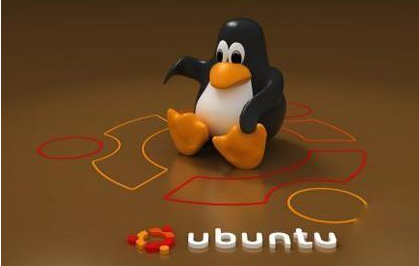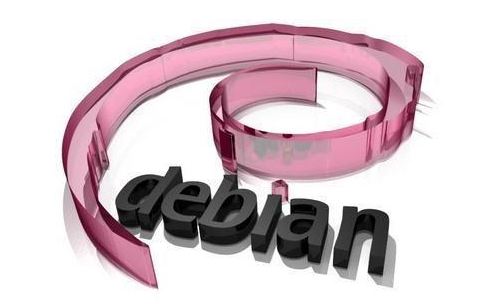Before the advent of Ubuntu, Debian was already a major force in the Linux field. More specifically, it is the Linux distribution of Debian that makes many other distributions from Knoppix to Simply Mepis a reality. This is like Ubuntu's relationship to Linux Mint: Ubuntu provides Mint with a foundation for easy development.
UbuntuUbuntu (Friends, Tuoba, Ubuntu) is an open source GNU/Linux operating system based on desktop applications. Ubuntu is based on Debian GNU/Linux and supports x86, amd64 (x64) and ppc architectures. Created by a global professional development team (Canonical Ltd).
Its name comes from the word "ubuntu" in Zulu or Hausa in southern Africa, similar to the Confucian "benevolence" idea, meaning "humanity", "my existence is because of the existence of everyone", is a kind of African tradition Values.
Ubuntu is based on the Debian distribution and the GNOME desktop environment. Starting with version 11.04, the Ubuntu distribution abandoned the Gnome desktop environment and changed to Unity. The difference with Debian is that it releases a new version every six months. Ubuntu's goal is to provide the average user with an up-to-date, yet stable, operating system built primarily from free software. Ubuntu has a huge community power that users can easily get help from the community. Ubuntu has made a huge contribution to the popularity of GNU/Linux, especially the popularity of the desktop, thereby enabling more people to share the results and excitement of open source.

On January 3, 2013, Ubuntu officially released a mobile operating system for smartphones.
Ubuntu's free open source desktop PC operating system based on linux is very suitable for Intel's ultra-polar positioning and supports x86, 64-bit and ppc architectures.
On February 20, 2014, Canonical held the Ubuntu smartphone launch conference at the Crowne Plaza Hotel in Zhongguancun, Beijing, officially announcing that Ubuntu and the domestic mobile phone maker Meizu jointly launched the Ubuntu version of MX3. Li Nan, vice president of Meizu, attended the event.
DebianDebian in a broad sense refers to a cooperative organization and its works dedicated to the creation of a free operating system. Because many of the kernel branches of the Debian project are based on the Linux macro kernel, and most of the basic tools in the operating system created by Debian developers come from GNU projects, so "Debian" is often referred to as Debian GNU/Linux.
The unofficial kernel branch also has Debian GNU/Hurd (Hurd microkernel) that only supports x86, and only supports Dyson (OpenSolaris mixed kernel) of amd64. These unofficial branches have some serious problems, and there is no practicality. For example, the Hurd microkernel is technically immature, and Dyson's basic functions are still not perfect.
"Debian" is officially pronounced /ˈdɛ.bi.ən/, and Debian is an international collaborative project. The official does not specify any non-English name.
Debian and ubuntu which is betterRelease installation
Although Ubuntu is based on Debian, it does not bring the same installation experience. For example, Debian lets you try out KDE, GNOME, and other desktop environments, and Ubuntu itself actually provides the Unity desktop environment. Admittedly, some Ubuntu derivatives on the market now offer alternative desktops, but Debian is officially available as an alternative to the desktop in the name of Debian. This is what Ubuntu lacks.
Another aspect worth mentioning is the way Debian is installed. You have two choices: either use the standard installation ISO file or use the Live ISO file bundled with the installer. I used the Live ISO file to see how the installer on this version handles the installation. To my surprise, the step-by-step operation of the graphical user interface (GUI) installer is not only very simple, but Debian even suggested that I consider creating a dedicated primary partition. Considering that Ubuntu is still one of the few distributions that don't give this advice, this feature of Debian is very good.

Ubuntu also provides an excellent GUI installer; however, I found that the lack of advice to build a dedicated primary partition is frustrating because it will only benefit users in the long run. I'm sure that Ubuntu developers are forcing users to manually choose this option for some mysterious reason, but the lack of this simple radio button makes me very angry.
Another aspect to consider is that the Debian installation process raises some issues that novice users might not understand. For example, the question about where the package image and GRUP are installed is best left to the middle and senior users. This is not to say that novice users can't understand such problems, but that most people are not willing to study hard to figure out what these things mean.
Another aspect of Ubuntu that differs from Debian is the visual effects that appear during the installation process. Debian's GUI installer lacks the various scrolling graphics that appear during the Ubuntu installation. This is not to say that one party is better than the other in this respect; rather, it probably indicates the impression that Debian gives: this is an unpretentious distribution.
Desktop experience
Once installed, both Ubuntu and Debian provide a standard desktop environment that provides application menus, desktops, and various applets. As far as Debian is concerned, I chose to use Gnome, so the desktop I got last was my choice. As far as Ubuntu is concerned, the last desktop you get will be Unity.
Ubuntu comes with a Firefox browser, while Debian offers an unbranded Iceweasel browser. It's the same browser as Firefox, but it doesn't have a trademark that belongs to the Mozilla Foundation.
The Gnome desktop I chose comes with a standard Gnome experience. Since I was running the desktop in a virtual machine, I finally got a fast backup mode because performance was limited on my test machine. To be frank, Debian with Gnome can beat Ubuntu in terms of performance when running on a machine with fewer resources. However, from the appearance point of view, Ubuntu regained a game in terms of aesthetics.
Both distributions use PulseAudio as their sound server after the default installation, which is a big surprise because most Debian users are less likely to want to use PulseAudio because it is considered a bloated technology by many Linux users.
Software management
One place that Debian has in common with Ubuntu is the use of Debian package management and its accompanying tools. At the terminal level, apt is used for package management.
GUI package management is starting to be different: Ubuntu uses the Ubuntu Software Center (https://apps.ubuntu.com/cat/) by default, and Debian uses Synaptic. For experienced Linux enthusiasts, the latter is actually more popular, because Synaptic is a better software tool than the software center. However, novice users may find themselves missing the Ubuntu Software Center because Synaptic lacks the perfection of Ubuntu's default options.
On the other hand are Ubuntu's personal package files (PPA, https://launchpad.net/ubuntu/+ppas) and Debian's backports (http://backports.debian.org/). The idea behind Ubuntu's PPA is that you can be sure that every piece of the latest software you choose is up to date. As for Debian, users can get the same experience using Debian backports. These software are basically tested by Debian and developed for use by Debian stable users. As for Ubuntu and Debian, users should be careful because advanced software can sometimes introduce new problems. My advice is that both methods are best avoided unless there is a revision, or if you use an advanced version of any of the software to get a feature. While older versions of the software seem a bit boring, they tend to be more stable.
Other miscellaneous
Another aspect of Ubuntu that differs from Debian is that most network devices in Ubuntu work by default. In the unlikely event that a proprietary driver is required, the restrictive driver management tool will handle this problem with ease. In contrast, Debian cannot run many wireless devices by default. It is true that the Debian component library has the required binary large object files (blobs); however, installing these files and allowing many popular wireless chipsets to work with Debian requires an end user.
Some people may think that Debian is more difficult to use. I don't agree with this statement, but I think that Debian is Linux without a seat belt. To get an Ubuntu-like experience in a Debian environment, just spend some time on the Debian wiki (http://wiki.debian.org/) and add one or two component libraries. In the end, what you get is a stable, responsive desktop that dwarfs any installed Ubuntu in terms of speed and stability. The secret to enjoying this benefit is that Debian only needs a little time.
The last example to prove that Debian is better is to install a proprietary video driver. For experienced users, the Debian approach is fairly straightforward. Just browse to the appropriate page, add the required component packages, and then paste the installation commands for the drivers you need. However, Ubuntu users have been spoiled by proprietary driver managers. The real good news is that, in fact, the Debian method is much faster than the Ubuntu method. Debian users only need to copy and paste the contents of the two command boxes from the Debian wiki. On the other hand, Ubuntu users rely on the GUI; as we all know, the GUI is far from perfect. To make matters worse, if something goes wrong, if you don't delve into the log itself, there is no detailed countermeasure for you to take.
The point here is that Debian needs a more hands-on user experience. Some people like this, and some people hesitate to think of making desktop Linux a more in-depth experience.
So, is Debian a strong Ubuntu replacement? The answer is yes, if you are willing to adjust your expectations.
Some users are willing to learn how Linux works, let them spend more time adding the required component libraries for additional hardware support, and that's fine; for these people, Debian is a great choice. Debian is easier to use than Arch Linux, but it still provides users with a fast and stable desktop that you can use with confidence for many years to come.
GALOCE Various products of Portable Truck Axle Scale, also called Mobile Vehicle Weighing Scales, providing product images and basic parameters with each Portable Axle Weigh Scales and Wireless Portable Axle Scale; We are a professional Chinese manufacturer of Portable Truck Axle Scale, and look forward to your cooperation!
Portable Truck Scale,Portable Axle Scales,Portable Vehicle Weighing Scales,Mobile Vehicle Weighing Scales
GALOCE (XI'AN) M&C TECHNOLOGY CO., LTD. , https://www.galoce-meas.com